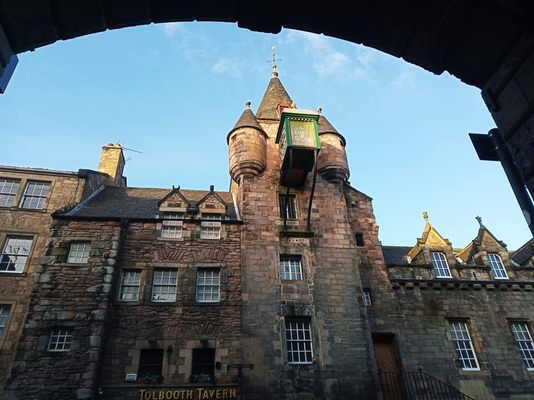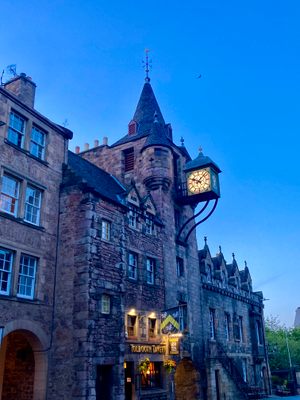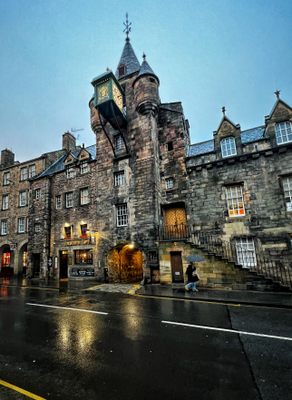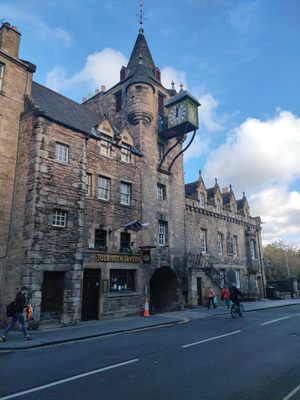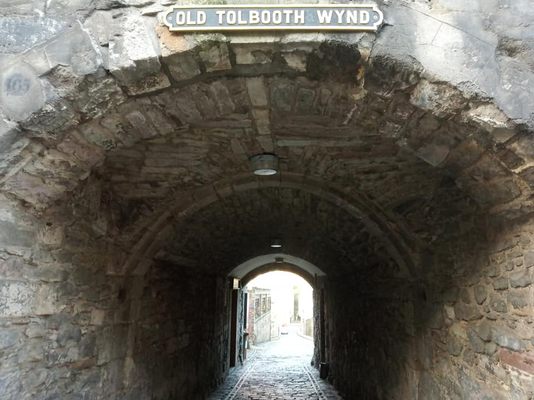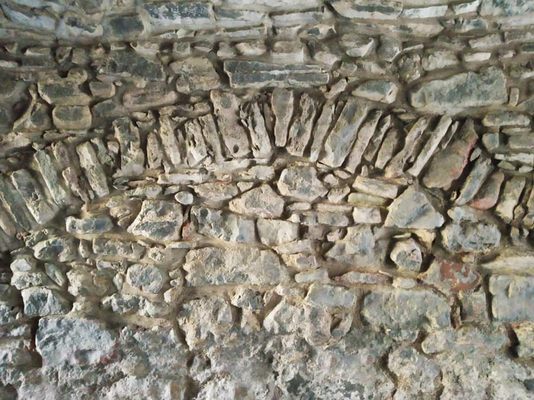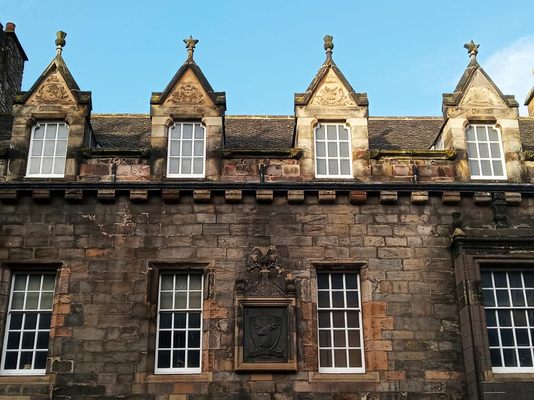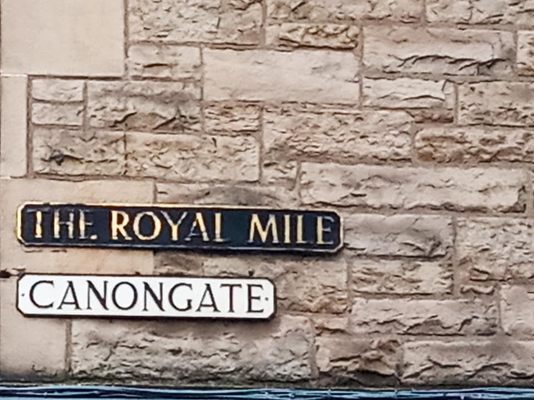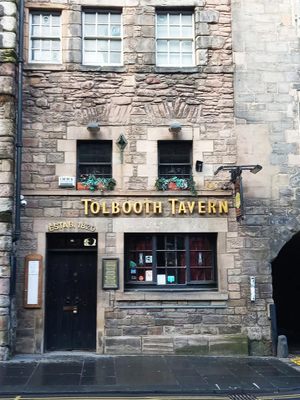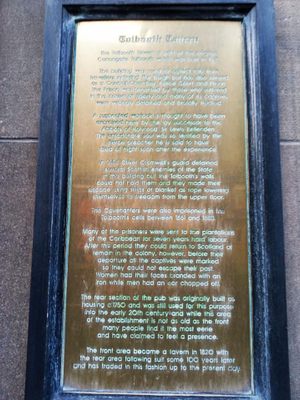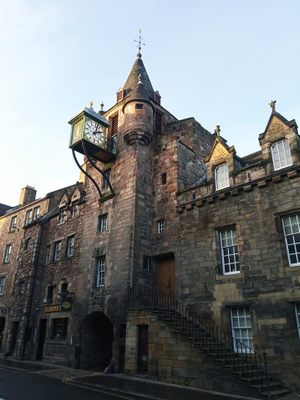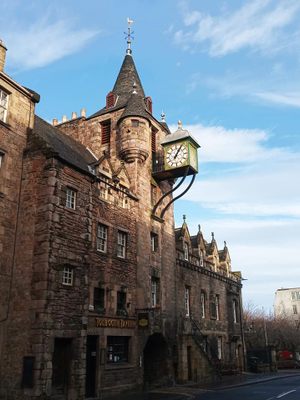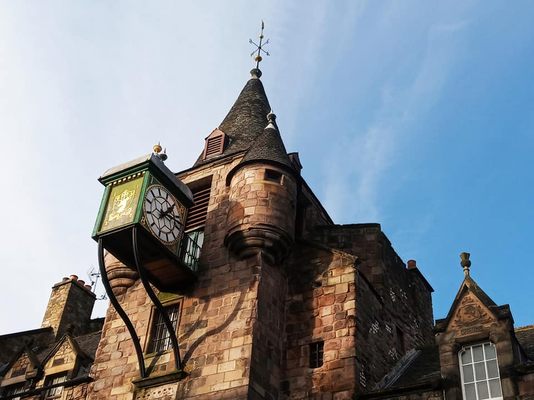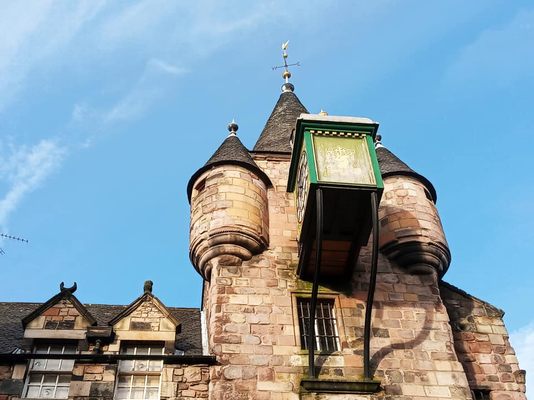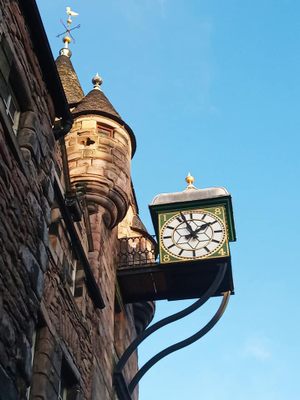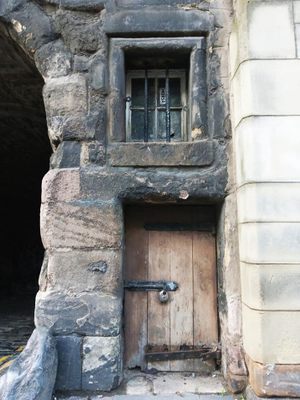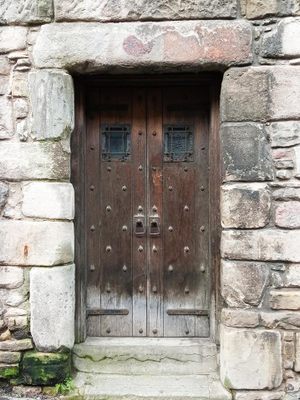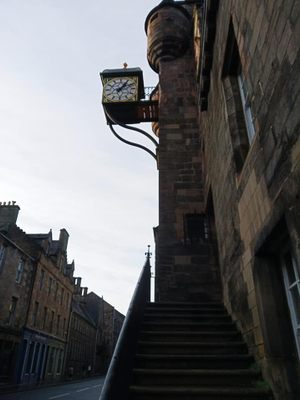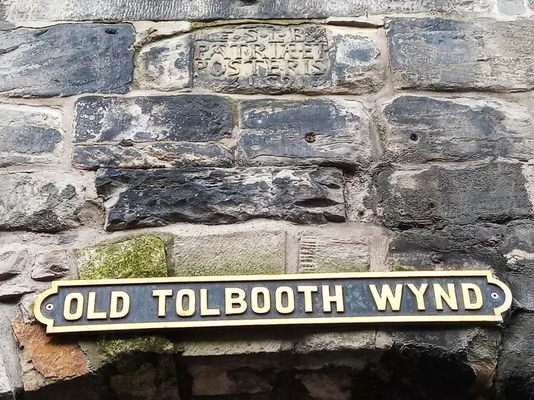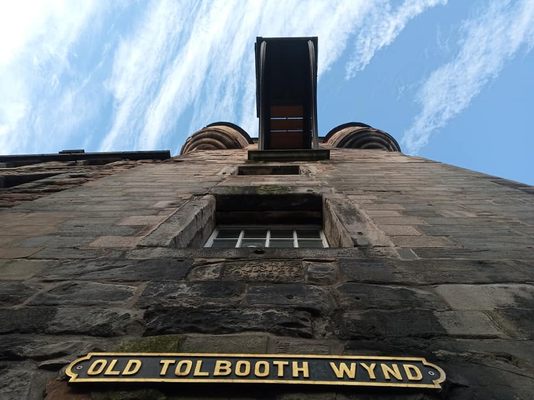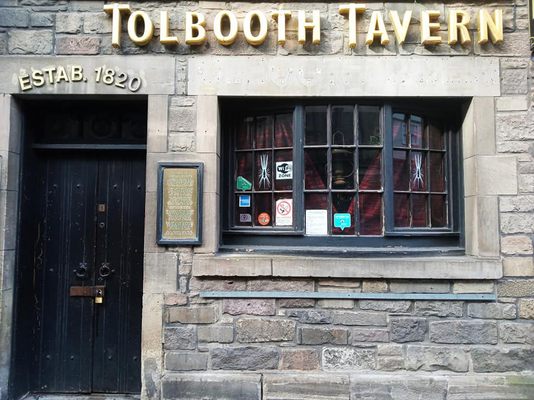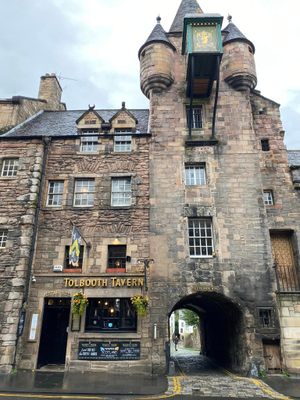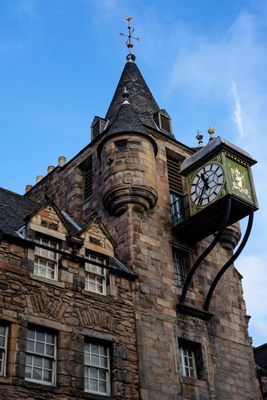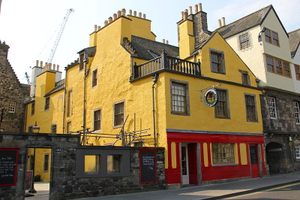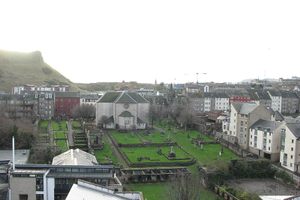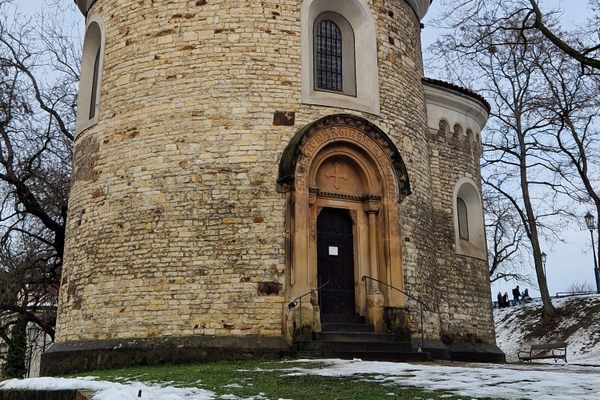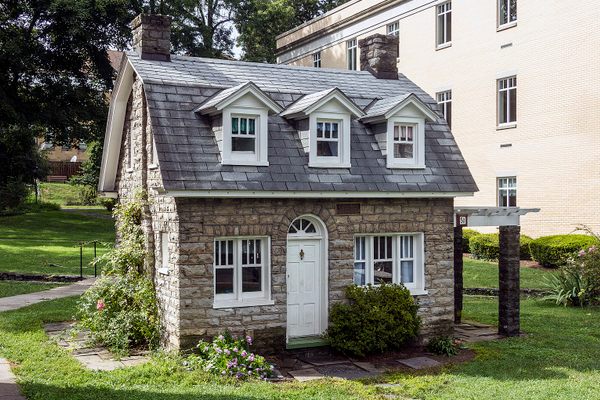About
Edinburgh is a very photogenic city that offers visitors several prime locales to snap a picture. One such visage is located along the Royal Mile, in an area known to locales as the Canongate. The Tolbooth Tavern is situated in an impressive stone building with an ornate clock tower. But what many tourists may be unaware of is that this building hides a dark and mysterious past.
Originally constructed in 1591, the building that contains The Tolbooth Tavern was used to collect tolls from travelers who wished to enter the city. It also functioned as a council chamber, police court, and prison. The prison incarcerated many individuals who fought alongside Charles Edward Stuart. They were often beaten and in some cases wrongly accused.
During the 16th-century, a suspected warlock was said to have been exorcised on the premises by Sir Lewis Bellenden, a chief Justice to the Abbotts of Holyrood. The man was reported to have expired after the tumultuous ordeal. The initials of Bellenden can be viewed outside, carved into the wall, above the entrance to Old Toll Wynd Close.
In the middle of the 1600s, Oliver Cromwell's army detained several Scottish enemies of the state within the structure. Fortunately, these incarcerated men were able to make their escape by fashioning bedclothes to make a rope and climbing out an upper window.
Nearly a decade later, the cells would be filled with Covenanters, religious inmates who objected to the king being the Head of the Church. If they weren't sent to Greyfriars, they were shipped off to the Caribbean to endure years of hard labor. In addition, they would be physically marked for their offense. Men would have an ear cut off and women would be branded on their faces.
This impressive five-story building is one of the oldest structures remaining from the Early Modern Period along this stretch of road. It didn't become an official drinking establishment until 1820 when the Canongate was officially absorbed into Edinburgh. The name Canongate, the area between Jeffrey Street and Holyrood Palace, is derived from the place where metal artillery was forged for Edinburgh Castle.
The clock structure was eventually added in 1884, emblazoned with the symbol of King David I and Holyrood, a stag with a cross-centered in its horns. The rear area of the bar was not incorporated until the 1900s and the entire premises has operated as an alehouse ever since.
A building as old as this one is bound to have its fair share of unwanted guests. Staff and clients have both reported the presence of the spectral nature. From objects being moved around, to items falling off walls and tables. Who knows if the tormented souls of the former prisoners or ill-fated warlock still haunt the premises.
Looking up towards the roof, to the left of the clock tower, one will notice sea shells implanted into the structure. It has been suggested that these offered protection from harmful spirits.
Related Tags
Know Before You Go
The exterior is visible at all hours of the day. To view the interior, check the website for opening times.
Flavors of Scotland: Beyond the Haggis
Smoked seafood, single malt whisky, and warm hospitality.
Book NowCommunity Contributors
Added By
Published
February 16, 2021
